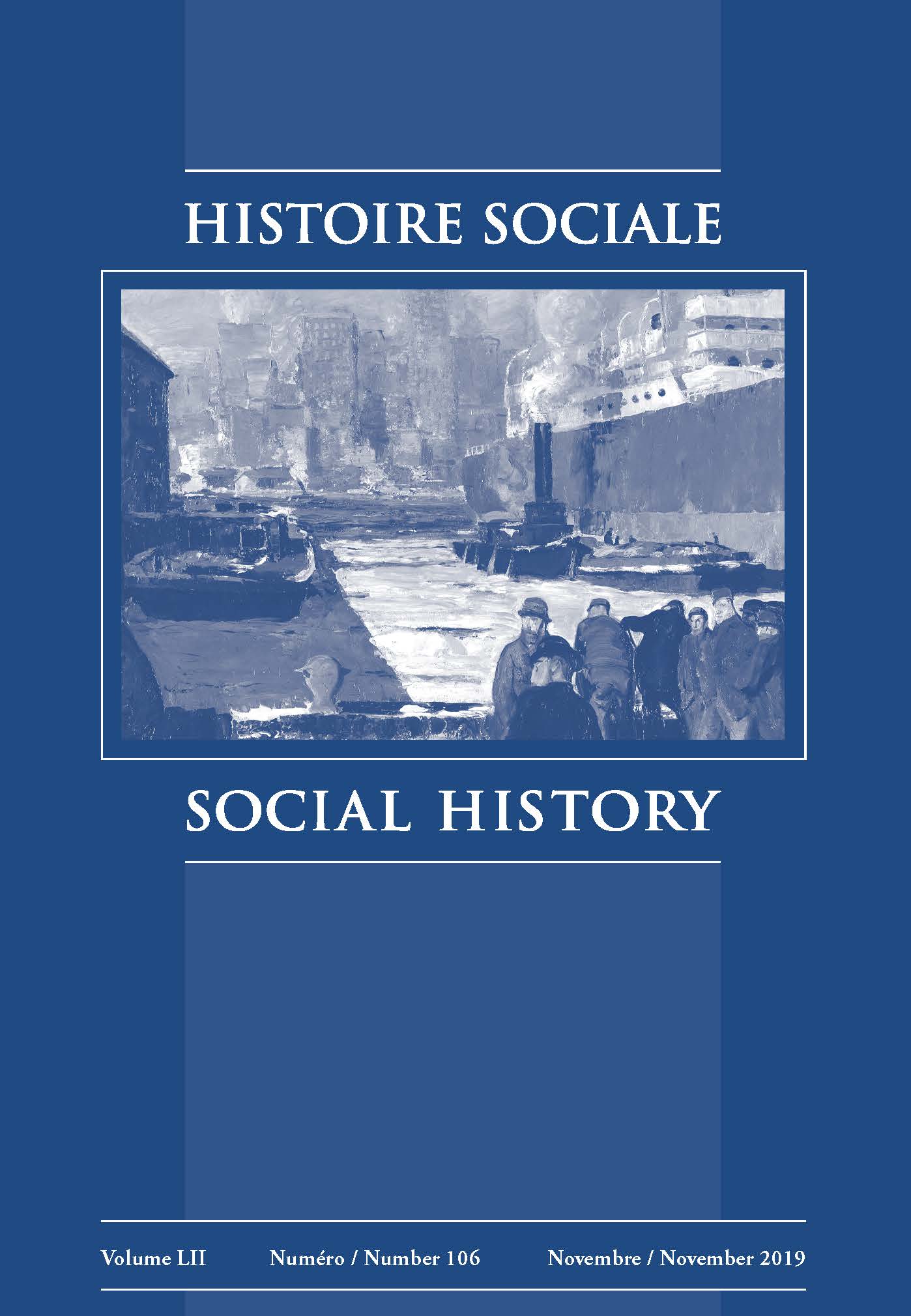The Meaning of Mount McKay: Anemki-waucheau and Settler Colonial Reterritorialization in Thunder Bay, Ontario
DOI:
https://doi.org/10.1353/his.2019.0035Abstract
This article interrogates the settler colonial history of Thunder Bay through place names and argues that gendered forms of anti-Indigenous violence are part of the city’s social architecture. Between 1860 and 1910, settlers produced vast amounts of wealth and built a local industrial economy founded upon land-based resources such as silver, timber, and shale; at the same time, settlers forcefully relocated Anishnaabe peoples to multiple reserve sites, prevented them from participating in the emergent industrial economy, and used their sacred mountain as a quarry for brick-making and as a stop-butt for a settler rifle range. The article deploys the concept of settler colonial reterritorialization to critique the ways in which this history has been sanctioned and celebrated through local place names such as Mount McKay, Fort William, Port Arthur, and Simpson Street. Ultimately, I show that the material violence of enfolding the land and its resources into an exploitative and exclusive settler colonial economy emerged in tandem with the power to name the land in honour of white men who played primary roles in that very violent historical process.


